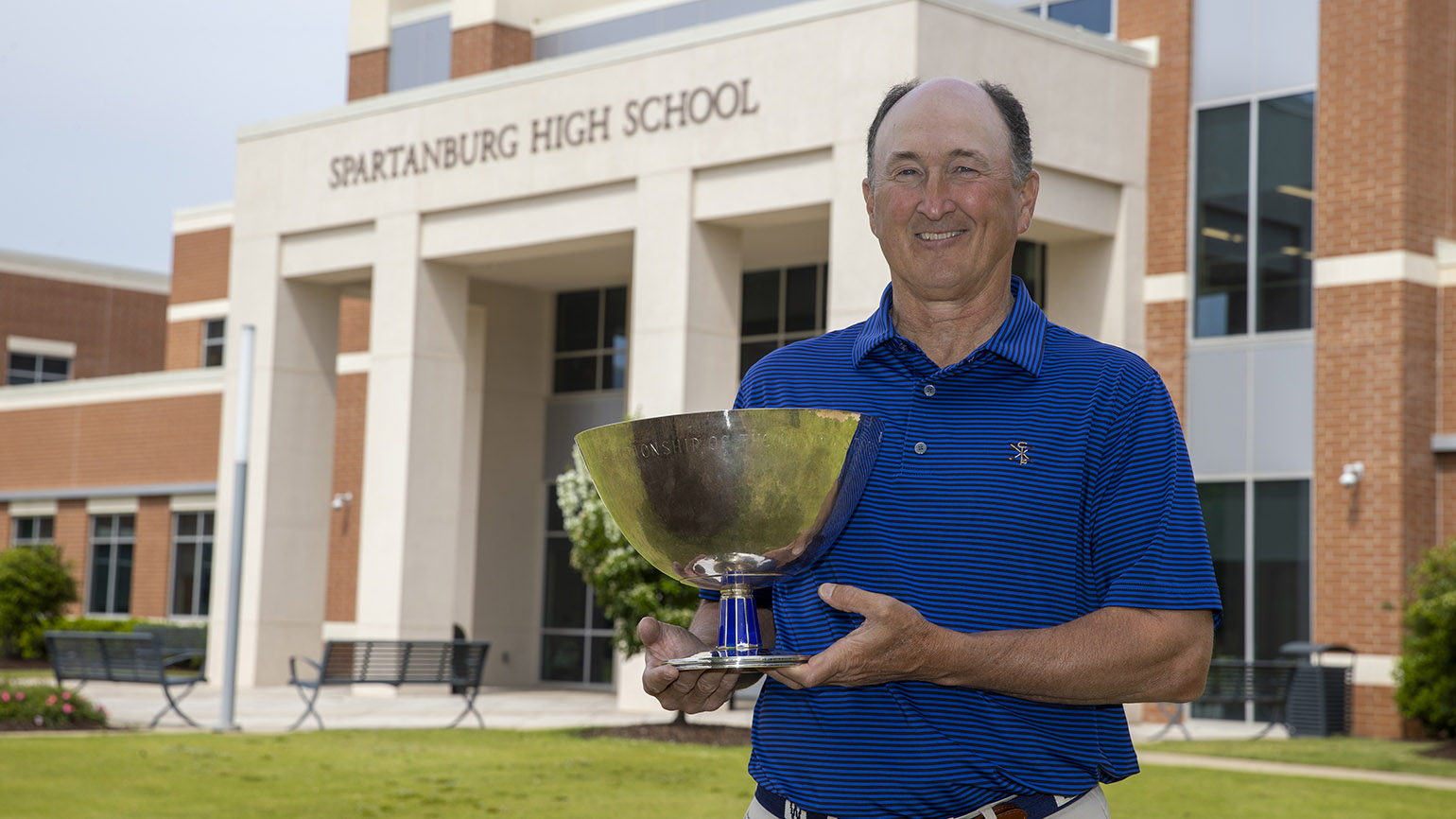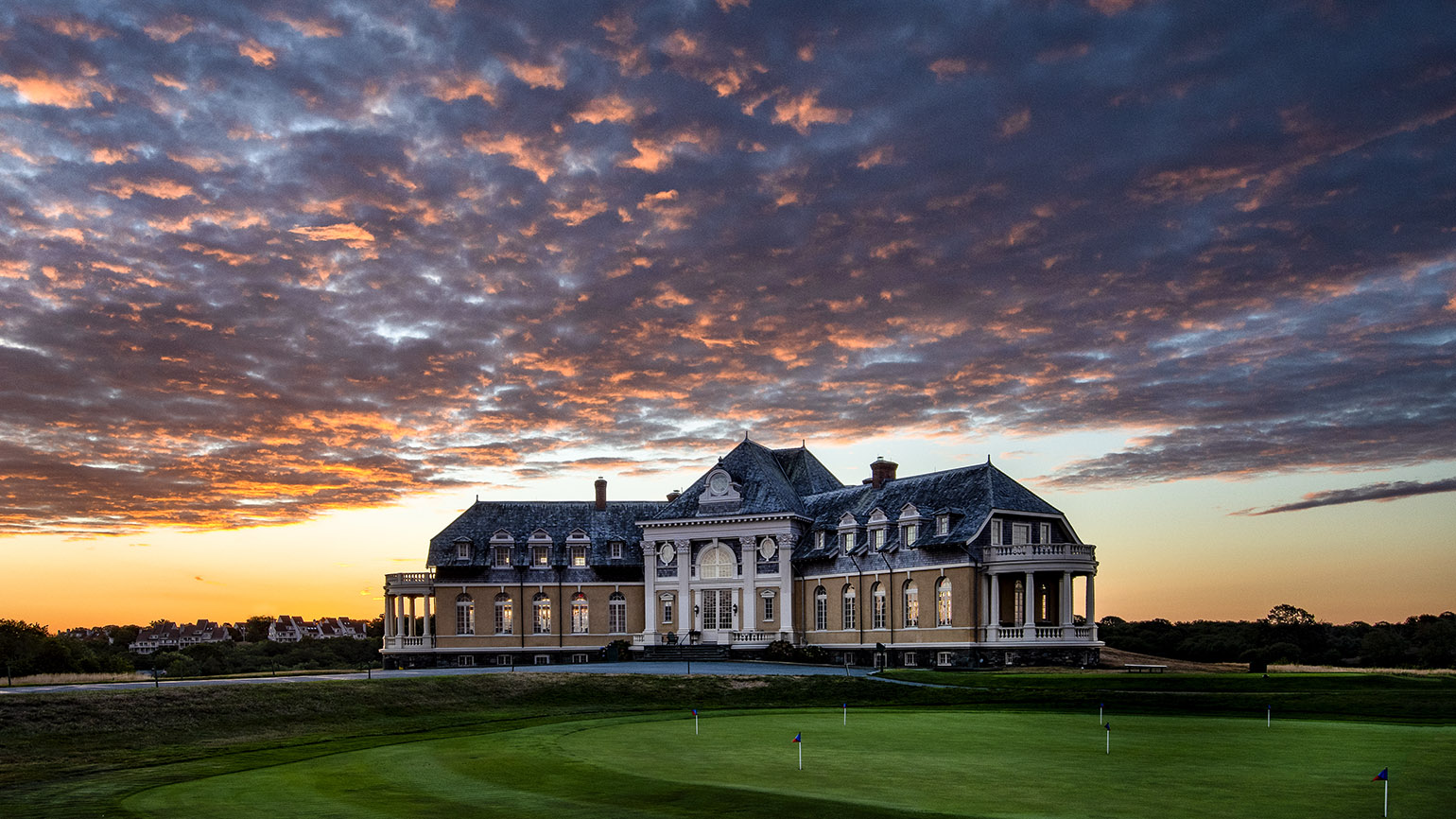3 Things to Know: 44th U.S. Senior Open, Rounds 1 and 2
When Charles Blair Macdonald claimed the inaugural U.S. Amateur title in 1895 at Newport Country Club, he likely never envisioned that 129 years later the USGA would be beginning a new millennium of championships at this historic facility.
But two weeks after a highly dramatic – and successful – U.S. Open at Pinehurst Resort & Country Club, the 1,001st USGA championship is set to challenge the world’s best 50-and-over golfers at the 44th U.S. Senior Open.
The course these players will be tested on is far different than the one Macdonald defeated Charles Sands, 12 and 11, in that first U.S. Amateur. The current layout was designed by legendary architect A.W. Tillinghast in 1923, with Ron Forse doing renovations in 1995.
This will only be the fifth USGA championship held at Newport, following the inaugural U.S. Amateur and U.S. Open in 1895, the Centennial U.S. Amateur in 1995 that was won by Tiger Woods and the 2006 U.S. Women’s Open claimed by Annika Sorenstam in an 18-hole, Monday playoff over Pat Hurst. The latter two are both members of the World Golf Hall of Fame (along with Macdonald posthumously), and it’s quite possible the individual holding the Francis D. Ouimet Memorial Trophy on Sunday could be a fellow inductee or, at the very least, a future member.
A total of six are in the field, including defending champion Bernhard Langer and 2024 inductee/2022 champion Padraig Harrington. The others are 2014 champion Colin Montgomerie, two-time U.S. Open champions Ernie Els and Retief Goosen and two-time major champ Vijay Singh.
No matter who hoists the trophy by week’s end, however, Newport Country Club will certainly be the star of the show. So, as Jeff Martin, of Attleboro, Mass., readies himself for Thursday’s opening tee shot at 7 a.m. EDT, here are three things to know for Rounds 1 and 2:
Heeled Man
What’s the old adage, beware of the injured golfer. That easily can be the case for defending champion Bernhard Langer, who defied the odds a year ago at SentryWorld by becoming the oldest U.S. Senior Open champion at age 65.
Always one of the fittest players on any professional tour, the now-66-year-old German suffered a setback on Feb. 1 when he tore his Achilles heel while playing pickleball at Woodfield Country Club in Boca Raton, Fla. Typically an injury that can take up to 12 months to heal after surgery, Langer returned to competitive golf a few weeks ago. Unfortunately, the setback kept him out of what was intended to be his final Masters Tournament in April and the U.S. Open at Pinehurst.
Given the use of a cart on the PGA Tour Champions, Langer can at least compete, despite limited mobility.
“I feel it. My leg and my ankle are swollen,” said Langer, who will have the use of a cart this week. “It's fatigue. I don't have the range of motion in my foot. So there's various things that aren't there yet. My balance is not where I want it to be, and my … calf muscle is probably one or two inches smaller than the other leg. I can't get on my tiptoes. Right foot, I can do that. Just my right foot. I tried it on my left, and nothing. I've got a ways to go, and I'm happy to be playing golf. The good thing is I can get carts in tournaments because right now I can't walk four or five days, 18 holes. It's impossible.”
Langer, who also won the U.S. Senior Open in 2010, will try to join Miller Barber as the only three-time champion of this event, and the first back-to-back winner since Allen Doyle in 2005-06.
If a 66-year-old on a bad wheel can pull off such a feat, Langer would be the likely candidate, given his workout regimen and lifestyle.
“I exercise every day and stretch,” said Langer. “I have done that since I can remember. I think that certainly helps to be reasonably fit, to have some stamina, and to feel better. Just the body functions better when we move the body. If we become too sedentary, sooner or later you're going to pay the price for it. I talked to my PT, physical therapist, and he said, if you lay two weeks in the hospital, just two weeks, don't do anything, guess how much strength you lose? 50 percent. I was shocked.
That only encourages me to do more, do something every day, instead of just laying around for a few days in a row.”
Rhode Game
It’s quite rare for a major golf event to be staged in the Ocean State. The USGA has only visited on nine previous occasions, and the 1995 U.S. Amateur was the last for a men’s championship. So, when Newport C.C. was chosen as the host site for the U.S. Senior Open – first in 2020 and, following the postponement for COVID-19, added back for 2024 – a pair of successful senior touring pros native to Rhode Island were ecstatic.
Brett Quigley, of Barrington, won the 1987 U.S. Junior Amateur before graduating to the PGA Tour and later the PGA Tour Champions, where he’s won a pair of titles. A year ago, he tied for fourth at SentryWorld, guaranteeing his spot in this week’s field.
Billy Andrade, of Bristol, helped Wake Forest to the 1986 NCAA title before registering four PGA Tour titles and later three PGA Tour Champions victories.
Both have been serving as unofficial ambassadors for this week’s championship – Andrade had 100 players/wives/significant others at his home Tuesday night for a dinner – and have done their best to provide tips on the course and area haunts. Andrade, of course, has been inundated with ticket requests.
“The great thing about when you get to my age, you can say no,” said Andrade, drawing a chuckle from gathered media at his Wednesday press conference. “You can also say go buy tickets. That will help the tournament too. You've got to cut it off at some point. When you have your Little League buddy from 50 years ago asking for tickets that I haven't seen in 50 years, maybe he can go buy them, yeah.”
Last year at SentryWorld, fans came out in droves to see Wisconsin natives Steve Stricker and Jerry Kelly play together in the third round. Stricker eventually finished second and Kelly third. Quigley and Andrade would relish a similar vibe in an area where the golf season is short but long on enthusiasm.
“I'll definitely feel that pressure of hometown,” said Quigley, “but I also think it's a positive where I know there's going to be a bunch of people pulling for me and pulling for Billy. I love that. I love seeing everybody that I haven't seen in a long time and just feeling those good vibes and people rooting me on. It's fantastic.”
Au Natural
One of the unique characteristics of Newport C.C. is the course has no irrigation, outside of greens and teeing grounds. All other areas of the layout are at the mercy of Mother Nature. Those who watched the 1995 U.S. Amateur will remember fairways being baked out to the point where it appeared the turf was dead.
That’s quite fine for the membership who appreciate the “old-school” look that summer in Rhode Island can bring. Several players this week have compared Newport to courses they have played in the United Kingdom or Ireland. U.S. Senior Open rookie Lee Westwood, of England, saw similarities to courses one might find on the west coast of England.
And the wind can blow from a plethora of different directions.
“It reminds me a little bit of [four-time U.S. Open site] Shinnecock [Hills], I guess,” said Westwood, who owns 19 top-10 finishes in majors without a victory. “It reminds me a little bit of links courses back home. When you're standing on some of the tees and you look over at the landscape, it reminds me of somewhere like [Royal] Birkdale or Hillside, somewhere like that, in that area.
“It was a pleasure to play. The wind did what a breeze does on links golf courses, and it switched after I played about three holes. That's part of the fun of playing on the coast. Yeah, it looks quite a strategic golf course. I'm looking forward to playing it competitively on Thursday.”
An inch of rain on Sunday softened the course a tad but all three practice rounds were devoid of precipitation, and the USGA is hoping things remain that way through the four competition rounds. Add some wind to go with firm and fast championship conditions and it adds up to a major test.
“The wind's blowing, which is great,” said Andrade. “I love that. I hope it blows all week, and I hope it blows different directions, because the golf course changes dramatically which way the wind is going. I think the harder, the better for me, and the harder, the better for whoever is going to win this on Sunday.”
David Shefter is a senior staff writer for the USGA. Email him at dshefter@usga.org.





